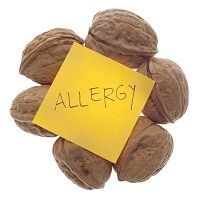Article
Kids with Food-Triggered Eczema at Higher Odds of Developing Food Allergies
Author(s):
Children that develop atopic dermatitis – or eczema – from foods are more susceptible to harsh allergic reactions from hives to life-threatening anaphylaxis.

Children that develop atopic dermatitis — or eczema – from foods are more susceptible to harsh allergic reactions from hives to life-threatening anaphylaxis.
According to Anne Marie Singh, MD, senior author and allergist at Ann & Robert H. Lurie Children’s Hospital of Chicago, these kids should have an emergency action plan and injectable epinephrine to keep them safe.
Singh remarked in a news release, “Our findings suggest that families of children diagnosed with food-triggered atopic dermatitis should be prepared to respond to a full-blown allergy reaction if the child is accidentally exposed to the food in question.”
To further explore this relationship between food-triggered allergies, the research team conducted a study including 298 patients with food-triggered atopic dermatitis.
A total of 19% of these patients, who did not have any history of immediate food reactions, actually developed a food allergy after being placed on an “elimination diet”.
Prior research had shown foods are a trigger in nearly 30% of patients suffering from moderate-to-severe atopic dermatitis — mainly in children younger than five years.
Typically parents are advised to ensure their kids completely avoid the triggering food. However, new research are questioning whether elimination of the food item is actually backfiring, and suggest moderate intake, instead.
Singh and team explained, “Given that in our study strict elimination diets as management for atopic dermatitis clearly increased the risk of immediate reactions, more research is needed to see if children may benefit from keeping tolerable amounts of the food allergen in their diet. Families should work with an allergist to determine the optimal treatment course for their child.”



